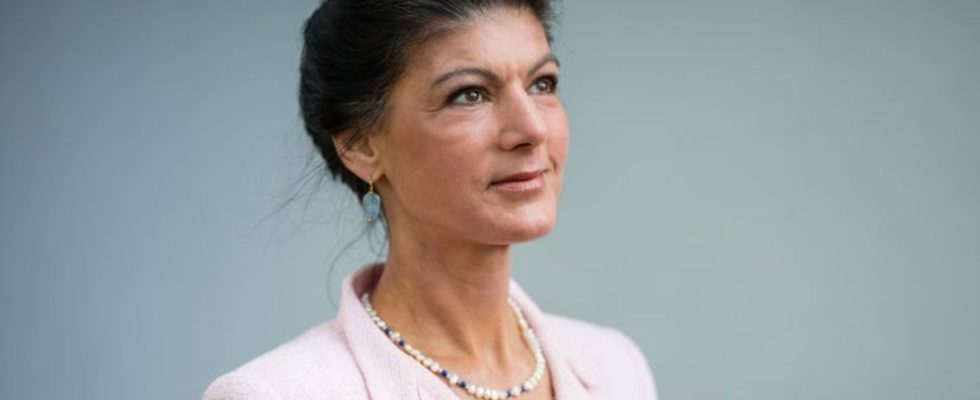After founding
8000 membership applications for Wagenknecht party
Sahra Wagenknecht is pleased with her party’s success so far. photo
© Oliver Dietze/dpa
Sahra Wagenknecht’s party was founded two and a half months ago and is currently aiming to score points in the state elections in the east. Construction progresses surprisingly quickly.
The forecasts in terms of growth would be far exceeded, said Wagenknecht. “Because I now experience how many people who are absolutely honest and solid and have great skills want to get involved with us,” said the former left-wing politician. “That’s why we can grow a little faster.”
Who joins the BSW?
She asked for your understanding that the admission process takes longer because the BSW wants to get to know new members first. That is not mistrust. “We just make sure that no one comes in who doesn’t share our program or who would appear destructive and chaotic.”
So far it has been shown that the BSW does not primarily attract people “who are difficult and who already have countless parties behind them.” There are many who are in the middle of life and have never been politically active before. They now realize “that something has slipped in our society, so they want to do something.” The members come from all social classes: from doctors to cashiers to farmers, from craftsmen to students.
There have already been cases in which applications have been rejected. “For example, if people want to join us directly from the AfD,” she said. In one case, the name was manipulated – and it was even an official at the AfD, said the 54-year-old.
More regional associations and no “Left 2.0”
The BSW is also continuing to build its structures. The first regional association in Saxony was founded at the end of February. The Thuringia regional association was added last Friday, and this Friday it will be founded in Saarland. “This is also due to the fact that we are running for local elections in individual districts,” she said.
The next company will be founded in Brandenburg at the beginning of May at the latest. “We had more time because we didn’t run for local elections with our own lists, but rather our members ran in local alliances.”
The other state associations should only be founded after the European elections – probably in the fall, said Wagenknecht. The aim is to start with a dual leadership everywhere: at least one of them should not come from the left. “We are not Left 2.0. And we want to quickly give citizens who have never been politically involved before the chance to help shape politics in a responsible position.” The BSW is also running in state elections in Saxony and Thuringia in September.
In surveys between three and eight percent
In election surveys, the BSW is between three and eight percent nationwide. Even though the party’s potential was previously estimated to be higher, Wagenknecht is satisfied. “There has hardly ever been a new party in the Federal Republic that was over five percent a good two months after it was founded. That is an enormous leap of faith,” she said. “But of course we want to expand it.”
In his own words, Wagenknecht senses that many felt addressed by the BSW. “Because there are a lot of people in Germany who no longer feel represented by any of the established parties. And who want a new political beginning.” And some said that with the BSW they had a serious alternative to the AfD, which they would otherwise have voted for in protest.
In the European elections on June 9th, the BSW wanted to land “above five percent,” said Wagenknecht. “We have to do strongly so that we can make a difference in Germany. We therefore have to convince our potential voters that this election is actually about Germany and our future influence here,” she said. The European elections are “the first serve” for the new party. The BSW continues to rely on donations to finance the election campaign, among other things.

